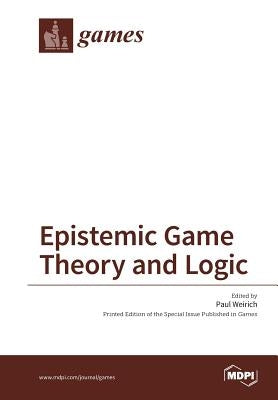Before you leave...
Take 20% off your first order
20% off
Enter the code below at checkout to get 20% off your first order
Discover summer reading lists for all ages & interests!
Find Your Next Read

Game theory addresses situations with multiple agents in which the outcome of an agent's act depends on the acts of the other agents. The agents may be mindless organisms. Epistemic game theory addresses games in which the agents have minds. An agent reasons about the acts of other agents and--if the other agents observe the agent's act--reasons about the other agents' responses to the act. The agents use logic to draw conclusions about the prospects of the acts that they can perform. This Special Issue of Games deals with epistemic game theory and the contributions that logic makes to an agent's practical reasoning about the strategy to adopt in a game. Although behavioral studies are relevant, the emphasis is on rational reasoning. Models of such reasoning may deal with cognitively ideal agents as well as humans. Possible topics include the players' common knowledge of their game and their rationality; reasoning that supports the players' in playing their part in a Nash equilibrium of the game; backwards induction, its results, and the conditions that support it; forward induction; learning in sequential games or in repetitions of games; Hintikka models and Kripke models of agents' information; applications of modal logic's methods to epistemic logic; interactive epistemology; Bayesian game theory and Bayesian equilibrium; and games with imperfect, incomplete, or asymmetric information.
Thanks for subscribing!
This email has been registered!
Take 20% off your first order
Enter the code below at checkout to get 20% off your first order